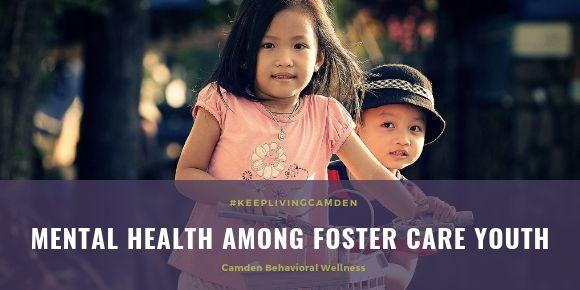
Understanding the circumstances surrounding the mental health of foster care youth is important to addressing gaps in mental health care within society. Children in foster care are youth that have been removed from the home of their parents or guardians and placed under the responsibility of a state child welfare agency. Treating mental and behavioral health of youth in foster care as been identified as this population’s greatest unmet need. Factors that contribute to this vastly unmet need among foster care youth include complex histories of trauma, broken family relations, and lack of consistent access to mental health services.
Due to the fact that many foster youth face the obstacles of traumatic life events and potential difficulties in placements and transitions in the child welfare system, they have high probabilities of struggling with mental illness. Research has found that over 80 percent of foster care youth have mental health issues in comparison to the 18-22 percent of the general population that has mental health issues. In particular, children and adolescents in foster care are known to struggle with post-traumatic stress disorder (PTSD), depression, anxiety, and attention-deficit/ hyperactivity disorder (ADHD). In addition to these findings, it has been determined by research that foster care youth are prescribed psychotropic medications (including mood stabilizers, anti psychotics, anti-anxiety medications, and stimulants) at a higher rate than non-foster youth. Foster care youth are usually provided with prescription drug coverage by Medicaid, a joint federal-state program that finances health care coverage for certain low-income populations.
it is important to realize that children in foster care are at a greater risk of having mental health problems than the general population. Even though there are children and adolescents that are adjusting well to their circumstances, there are also youth that are exhibiting mental health problems that need to be more consistently addressed. Prevention interventions and mental health promotion is something that would greatly benefit most children enduring the difficulties of being within the foster care system. Leaving mental health problems untreated in this population can result in the escalation and worsening of issues for children.
A few recommendations for approaching mental health of the foster care population from the Casey Family Program, the nation’s largest operating foundation focused on safely reducing the need for foster care, include the following:
- Regularly screening youth in foster care for mental health disorders and providing effective mental health treatment to those that need it
- Provide training on mental health disorders to foster parents and social workers
- Empower youth and foster parents to advocate for mental health services
- Ensure that alumni (children who have “aged out” of state care) of foster care have access to effective mental health services
- Help youth in care and alumni of care who are doing well to keep doing well
For more information about mental health among foster care youth, check out the following web resources:
- http://www.ncsl.org/research/human-services/mental-health-and-foster-care.aspx
- https://www.gao.gov/products/GAO-12-201
- https://www.safy.org/mental-health-among-children-in-foster-care/
- https://www.ihs.gov/telebehavioral/includes/themes/newihstheme/display_objects/documents/slides/childmentalhealth/mhfostercare0314.pdf
